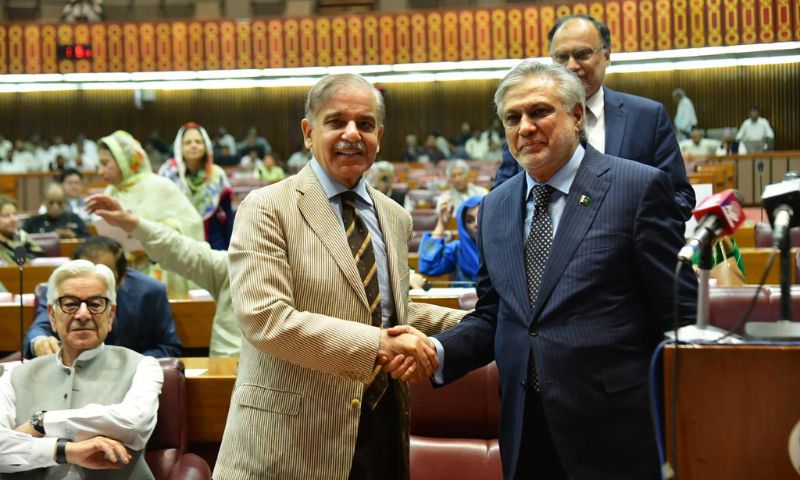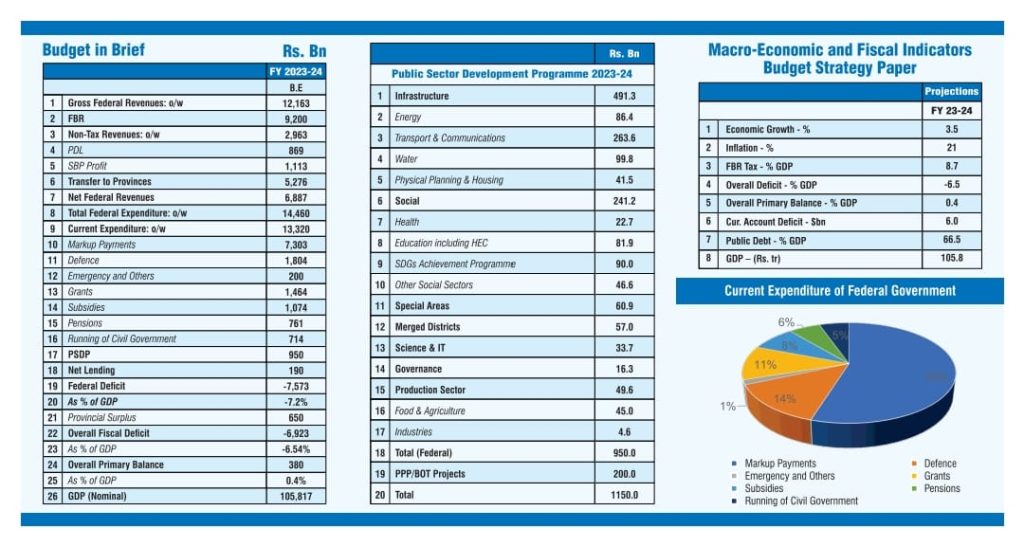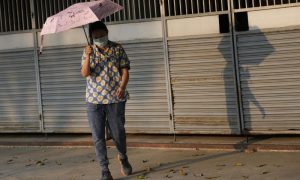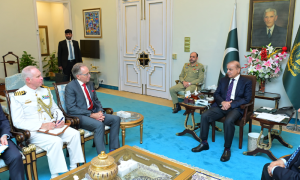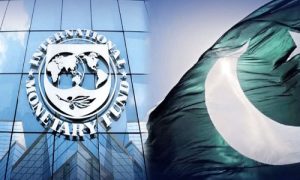ISLAMABAD: Pakistan on Friday announced a total budget of Rs14.5 trillion for the financial year 2023-24 with a major chunk of Rs7,303 being allocated for debt servicing, Rs2,709 for Public Sector Development Programme (PSDP) and Rs1,804 billion for defence.
Of the total Public Sector Development Programme (PSDP) budget of Rs2,709 billion, Rs1,150 has been proposed for the federal government and Rs1,559 for provinces.
Finance Minister Ishaq Dar presented the federal budget in the National Assembly in the presence of Prime Minister Shehbaz Sharif and other members of the National Assembly.
The federal budget has set the revenue target for the Federal Bureau of Revenue (FBR) at Rs9,200 billion. The budget has envisaged a non-tax revenue collection of Rs2,963 billion. The budget has proposed Rs761 billion for pension, Rs1,074 billion for subsidies and Rs450 billion for Benazir Income Support Programme.
Higher Education
Dar said that Rs65 billion have been allocated in the current budget for higher education and Rs70 billion for development expenses.
He said that Pakistan Endowment Fund is being set up for financial assistance in the field of education and Rs5 billion are being allocated in the budget for the Pakistan Endowment Fund.
He said that the fund will provide scholarships to high school and college students on merit-based basis
Under the scheme, 1 lakh laptops will be distributed to students on merit, he said.
He said that Rs40 billion have been earmarked for Benazir Income Support Programme with a total net enhancement of Rs150 billion
The scope of Benazir Education Scholarships has been increased from Rs6 million to Rs8.3 million.
The number of children under the BISP will be increased to 3.2 million and Rs32 billion have been allocated under this head.
He said that sales tax rate on Greek medicines is being increased to 1 per cent while 10% duty on used clothes is being abolished.
Schemes for low income groups
Dar said that health card will be issued to working journalists while a diamond card was being issued for overseas Pakistanis who send remittances. He said that diamond card will be issued to remittances of more than $50,000 annually. He said that diamond card holders will be given access to Green Passport and Pakistani embassies will facilitate cardholders for fast track immigration facilities at Pakistani airports.
The big prize scheme will be issued to the card holders through a draw of lots, he said.
Fiscal deficit
For the fiscal year 2023-24, the overall deficit has been estimated at Rs6,923 billion, which is 82 per cent higher than last year’s Rs3,797 billion. This year, fiscal deficit stands at 6.54 per cent of the GDP. Last year, the deficit was 4.9 per cent of the GDP.
Inflation
Following last year’s actual high inflation at 28.2 per cent, the government has set a target to bring down inflation to 21 per cent in the next fiscal year.
Dar said the government had realised it would have to take “extremely painful steps” for economic rehabilitation, adding that doing so would cause poverty and inflation to increase.
At the beginning of his initial speech in the National Assembly, Dar said that during the previous tenure of the PML-N, the government overcome the gigantic challenges of load-shedding and terrorism and due to the prudent policies, Pakistan came out of the crises.
He claimed that all gains of the previous government went down the drain when the “selected government’ of the PTI was installed through a conspiracy.
The finance minister said for the next year, GDP growth had been projected at 3.5 per cent, terming it a “modest target”. He said that this budget is “not an election budget” and is focusing on the “elements of the real economy”.
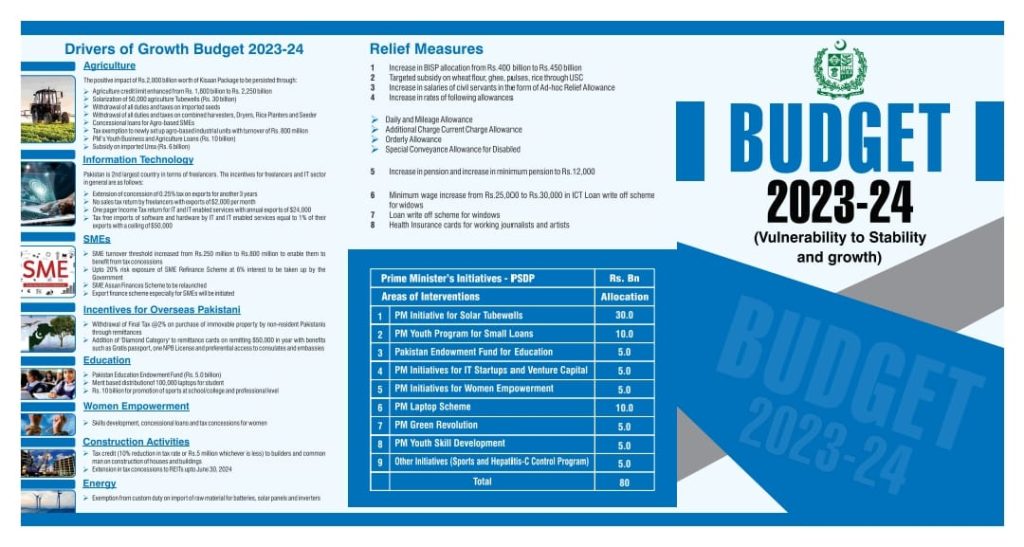
Balancing IMF conditions and election year
The government is expected to walk a tight rope in this budget as it looks to meet the requirements of the International Monetary Fund (IMF) as well as provide some relief to the public in what is an election year.
In light of the economy’s sputtering under the weight of two deficits and record-high inflation, which has further eroded support for Prime Minister Shehbaz Sharif’s government, enlisting the IMF is crucial.
The coalition administration wants to convince the IMF to release at least some of the $2.5 billion that is still locked up in a $6.5 billion programme that Pakistan entered in 2019 and that will expire at the end of this month.
Almost all of the economic goals set forth in the previous budget were missed by the nation, most notably the growth goal, which was originally set at 5 percent but then reduced to 2 percent early this year. The growth for the fiscal year ending June 30 was just 0.29 percent.
According to figures issued by the State Bank of Pakistan (SBP) on Thursday, foreign exchange reserves have fallen below $4 billion, just enough to fund a month’s worth of imports.
With few options for short-term revenue generation and rising domestic and foreign debt obligations, the government lacks the financial room to implement popular policies that will win it votes.









